I want to calculate the theta complexity of this nested for loop:
for (int i = 0; i < n; i++) {
for (int j = 0; j < i; j++) {
for (int k = 0; k < j; k++) {
// statement
I'd say it's n^3, but I don't think this is correct, because each for loop does not go from 1 to n. I did some tests:
n = 5 -> 10
10 -> 120
30 -> 4060
50 -> 19600
So it must be between n^2 and n^3. I tried the summation formula and such, but my results are way too high. Though of n^2 log(n), but that's also wrong...
